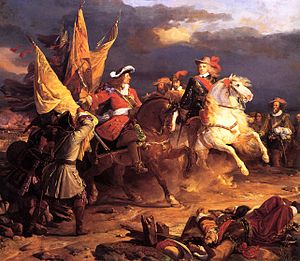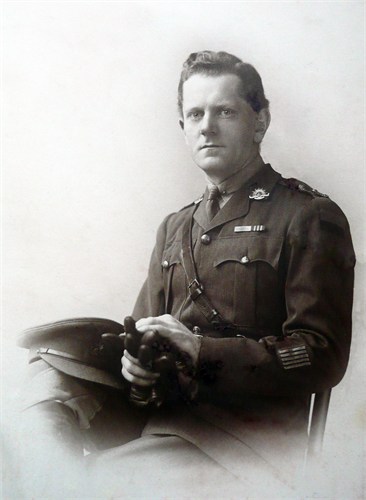
Today is an appropriate day to remember my grandfather, Capt. Reginald Walter Jones, MC, MM of the 14th Battalion of the 1st AIF. He was a decorated and highly effective Scout-Sniper and Company Commander in World War I.
He had a good war, meaning he survived, while his two brothers Cpl. Llewellyn Rowland Jones, MM (K.I.A. France. 18th September 1918) and Sgt. Raymond Leslie Jones (K.I.A. France. 11 April 1917) did not return.
In the case of Ray, 128 or more men of the 14th were K.I.A. on that day alone, not to mention the next. They were very ugly battles in those days. He was killed along with a total of 2260 men from the 4th Brigade in the infamous Battle of Bullecourt:
“So ended the Battle of Bullecourt, the most disastrous, the most bloody, yet perhaps the most glorious day in the history of the 4th Brigade.”
History of the 14th Battalion, AIF, by Newton Wanliss, 1929
People cannot relate to such things now, it seems incredible.
Nor do they remember Jones of the 14th, because the role of a Scout-Sniper is not well understood outside of the theater of operations.
If you want to know what a Scout-Sniper actually does, think of the character of SFC Norm “Hoot” Gibson in the movie Black Hawk Down.
That movie character was in fact based on an amalgam of real-life people: SFC John Macejunas, SFC Norm Hooten and SFC Matthew Rierson and their exemplary conduct at the Battle of Mogadishu.
That is what Jones and Jacka did during World War I, in and around the trenches and No Mans Land of the Dardenelles, Turkey and the Fields of Messines, France. There were no special forces or commando units then.
Certain men just volunteered themselves for the tricky jobs and got them done: Capts. Jones and Jacka at Messines. Jacka in the Dardenelles for a Victoria Cross.
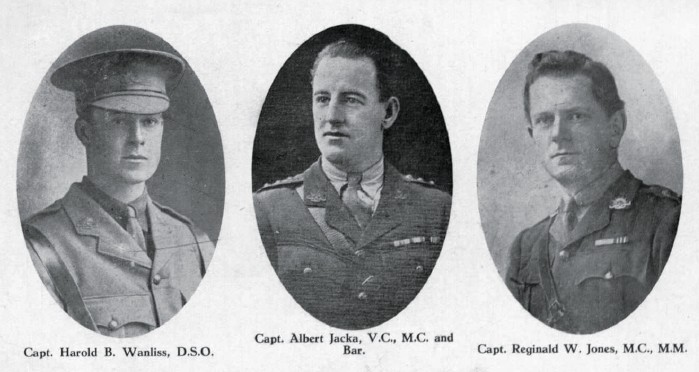
Although Jones enlisted as a Private, the Army soon figured out that he was a deadly rifle shot and promoted him. As in any war, the best shooters become snipers. With that, naturally goes the role of scout. This involves missions to probe the enemy and determine threats, and to find weaknesses in their defenses.
Such work requires men who are very resourceful, quick-witted, and fearless under fire. Their role requires high powers of observation and intuitive perception. This means they often work alone. A good scout may stake his own life on his own intuition and abilities, but will not risk the life of others without cause.
That is why scout-snipers often appear to be outsiders. They make a wall. Reg did that.
However, that does not make them poor leaders of men. On the contrary, Capt. Jones led companies in France in action alongside those led by his good mate Jacka. Jones of the 14th was by then a highly regarded combat veteran, and counted as one of the “three or four best men”, in the AIF, in the company of that deservedly famous soldier Capt. Albert Jacka, VC MC and Bar, according to the official War History.
Jones was effective in command, and as a soldier, because he was single-minded and had a simple view on leadership by example.
Strategy according to Jones:
Form a Shooting Gallery and stock it with the finest riflemen in the Battalion.
Tactics according to Jones:
Shoot every man who pops up his head, stone cold dead.
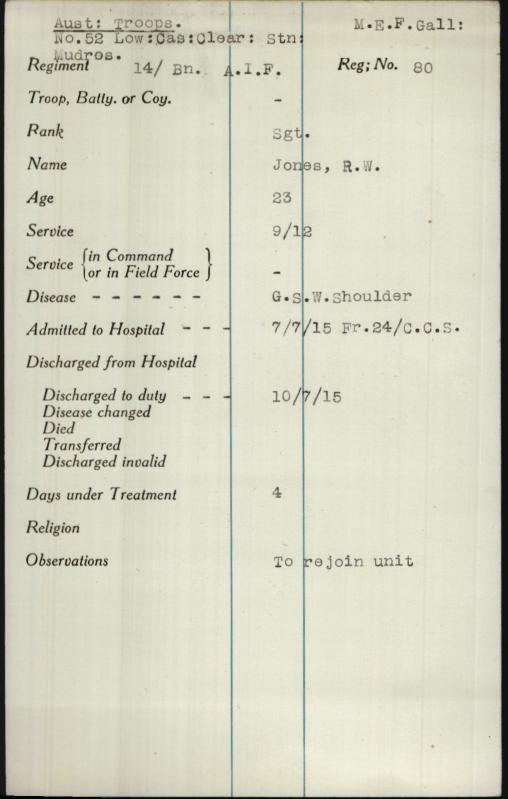
He was never a cruel man, but he knew the enemy sniper was a clear and present threat to him and his men. It is the threat, and not the man, that must be eliminated.
It was that simple.
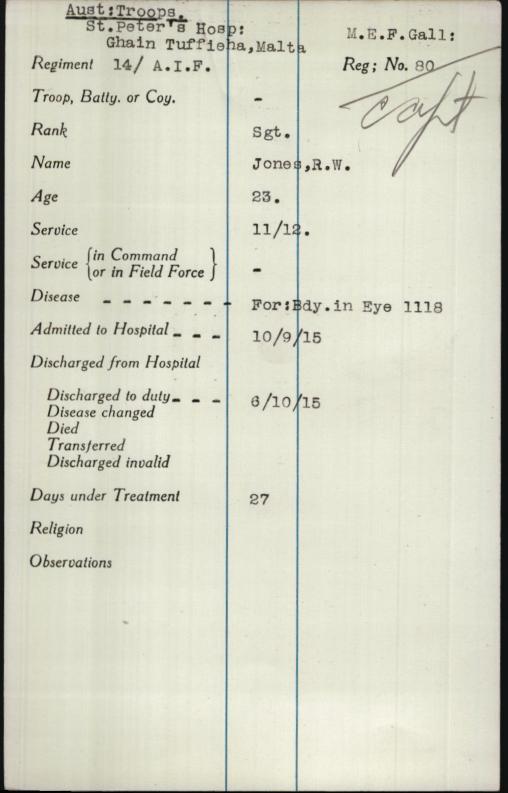
As a sniper, he accounted for over fifty Turkish soldiers and snipers in the Dardanelles. He was shot several times himself by enemy snipers and lost many mates, shot right beside him. They would work in teams of two with periscope and often one got hit.
In later life, he would recount such tales of war. It was never with pride at having taken the fathers and sons of many families. He was a deeply religious man who lost many friends and both his brothers in the Great War. However, he did consider that he had shot well. He had shot across ravines, through brushes, and dust and swirling smoke at ranges of up to a mile in harsh and deadly conditions. That was the only thing he really took pride in. He did his duty, shot well and survived.
Understandably, while he had a good war, he had a difficult peace.
Even today, the Special Forces and other highly demanding roles for the professional soldier are not well regarded. Society does not rightly understand what it demands of young men and women when we send them off to war.
This is very unfair to such men and women. They do their duty for their country at great personal physical and psychological risk. We demand a Titanium Psyche of them and we really should respect them for taking on such a burden.
Reg certainly had a powerful psychic presence. That I recall, but we did not interact much when I was a child. He passed away before I was five.
In truth, he scared the Living Daylights out of me.
However, as any small boy, I did admire his 0.303 Lee-Enfield rifle. That was some kind of weapon, designed for a shooting war with two opposing galleries and a mountain of mud and guts in between. That 0.303 is what got Capt. Jones through the war.
That, and a very cool head for risky situations.
The official history describes Jones as an “aggressive” soldier, however he had a clean war record, all 174 pages of it. Occasionally, he would get into minor skirmishes with superiors over this and that, but nothing serious. In our family, the story was told that he was busted for jumping ship in Italy to go and see Rome, because he did not want to: “Come this far and miss it.” However, I could find no mention of that in the war record. In any case, if he was busted, he was very soon promoted once more.
The AIF so respected Capt. Jones that when he asked for something he got it. He had been shot up a lot already, and then his brother Ray was killed in action at the very bloody Battle of Bullecourt. His mother and sister became sick with grief and worry. At his request, the AIF gladly sent him back to Melbourne for two months with their blessing. Then he went straight back to the front in France.
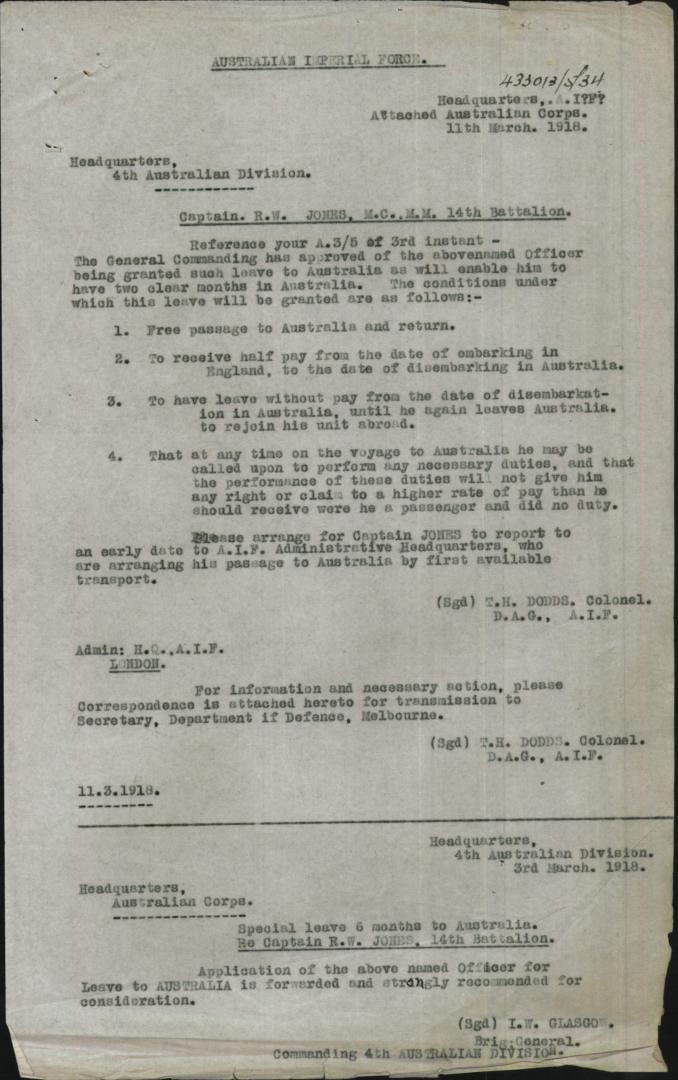
People say the Word War I command was harsh.
The Australian Command were tough yes, but in the AIF they respected good men.
Jones never shirked a battle, but was often in hospital. On one occasion, he manged to blow his own thumb off when probing a captured German Flare Thrower. The official War Record makes very clear this was an accident and was no fault of Jones himself. People today would not understand what that means. In those days, if you shirked a battle through intentional self-wounding, the command could, in their rights, have you Shot as a Deserter. That’s War. No Shirkers. No running from what needs doing.
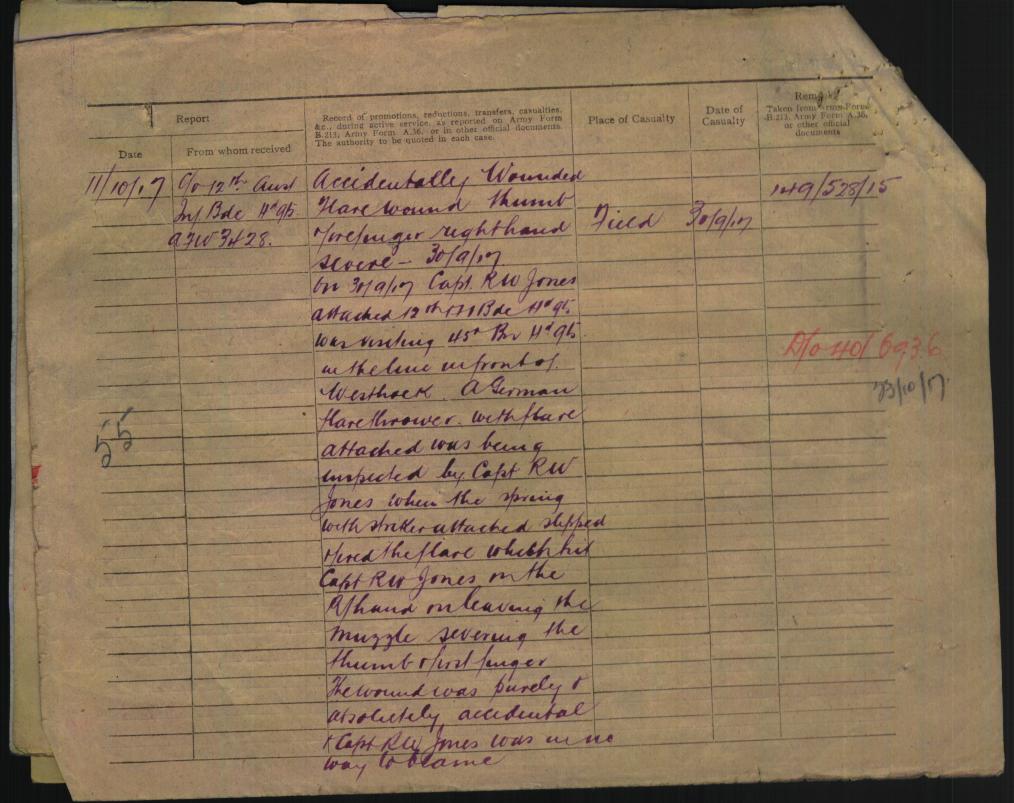
The highlight for the military career of Capt. Reginald Walter Jones was his award of the Military Cross for a daring raid in France. He covered 800 yards of open ground under heavy machine gun and sniper fire to disable and capture a German gun emplacement. He captured three 77mm German guns and a large cache of ammunition. The result was an advance of the whole line by 800 yards at one stroke.
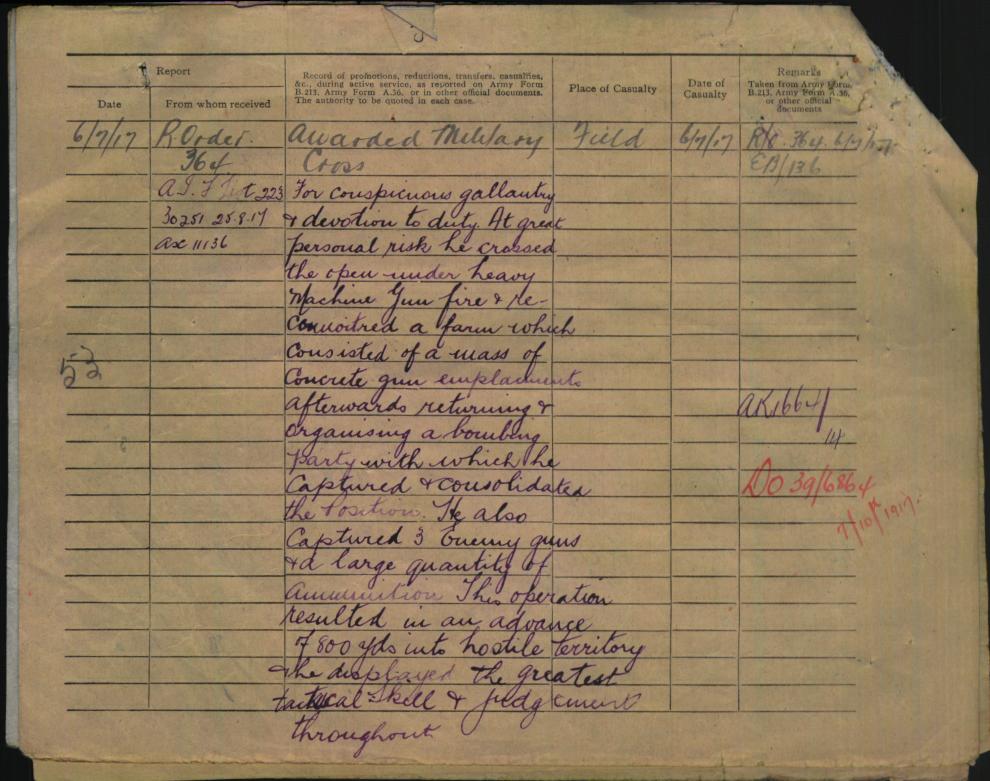
Not a Bad Day Out in France for a Bloke from St Kilda!
True to form, Reg got himself shot, just enough, by accident, and not too much: through the cheek and neck. That was an MC. The wily fellow was sharp enough not to get himself killed and risk a posthumous VC.
The real prize and commendation was to: advance the line and survive.
Today, of all days, I am proud to remember my grandfather: Capt. Reginald Walter Jones, MC, MM (returned). I am especially proud of the last citation: returned.
I have to say, I was not always proud though. Sometimes, the whole family history really creeped me out. When I was a child, I would say to the other children in the playground:
My Grandfather, Reg, shot fifty Turkish snipers at the Dardenelles!
Then the other kids would not play with me, so I never ever spoke of it again.
However, now I am older, and wiser. The veteran of my own battles, I say:
My Grandfather, Reg, sniped for The King so he could go hunt Grouse!
That is the proper division of labor in any society:
Those who can shoot, Snipe.
Those who can’t shoot, hunt Grouse.
I really hope my grandfather can hear that now.
It would bring a smile to his sometimes strained face.
He was a good man: “Jones of the 14th”, and I am proud to be his grandson.
On ANZAC day, my thoughts go out to all who have fought, loved and lost in a War.


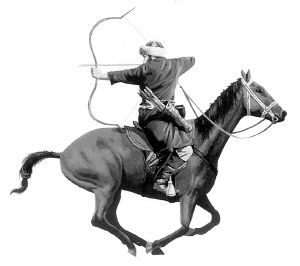 The Mongol Way
The Mongol Way